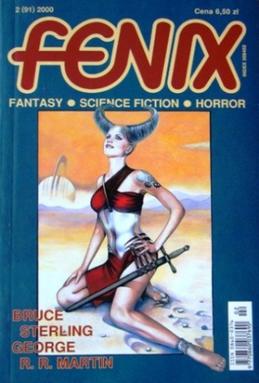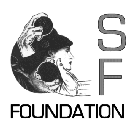
Joanna Russ was an American writer, academic and feminist. She is the author of a number of works of science fiction, fantasy and feminist literary criticism such as How to Suppress Women's Writing, as well as a contemporary novel, On Strike Against God, and one children's book, Kittatinny. She is best known for The Female Man, a novel combining utopian fiction and satire, and the story "When It Changed".

Speculative fiction is an umbrella genre of fiction that encompasses all the subgenres that depart from realism, or strictly imitating everyday reality, instead presenting fantastical, supernatural, futuristic, or other imaginative realms. This catch-all genre includes, but is not limited to, science fiction, fantasy, horror, slipstream, magical realism, superhero fiction, alternate history, utopia and dystopia, fairy tales, steampunk, cyberpunk, weird fiction, and some apocalyptic and post-apocalyptic fiction. The term has been used for works of literature, film, television, drama, video games, radio, and their hybrids.

Gene Rodman Wolfe was an American science fiction and fantasy writer. He was noted for his dense, allusive prose as well as the strong influence of his Catholic faith. He was a prolific short story writer and novelist, and won many literary awards. Wolfe has been called "the Melville of science fiction", and was honored as a Grand Master by the Science Fiction and Fantasy Writers of America.

The Magazine of Fantasy & Science Fiction is a U.S. fantasy and science-fiction magazine, first published in 1949 by Mystery House, a subsidiary of Lawrence Spivak's Mercury Press. Editors Anthony Boucher and J. Francis McComas had approached Spivak in the mid-1940s about creating a fantasy companion to Spivak's existing mystery title, Ellery Queen's Mystery Magazine. The first issue was titled The Magazine of Fantasy, but the decision was quickly made to include science fiction as well as fantasy, and the title was changed correspondingly with the second issue. F&SF was quite different in presentation from the existing science-fiction magazines of the day, most of which were in pulp format: it had no interior illustrations, no letter column, and text in a single-column format, which in the opinion of science-fiction historian Mike Ashley "set F&SF apart, giving it the air and authority of a superior magazine".

LGBT themes in speculative fiction include lesbian, gay, bisexual, or transgender (LGBT) themes in science fiction, fantasy, horror fiction and related genres.[a] Such elements may include an LGBT character as the protagonist or a major character, or explorations of sexuality or gender that deviate from the heteronormative.

Fenix was a Polish science fiction magazine published from 1990 to 2001. It was the first privately owned magazine in the country. It was created by Jarosław Grzędowicz, Krzysztof Sokołowski, Rafał A. Ziemkiewicz, Andrzej Łaski and Dariusz Zientalak jr.
Locus: The Magazine of The Science Fiction & Fantasy Field, founded in 1968, is an American magazine published monthly in Oakland, California. It is the news organ and trade journal for the English-language science fiction and fantasy fields. It also publishes comprehensive listings of all new books published in the genres. The magazine also presents the annual Locus Awards. Locus Online was launched in April 1997, as a semi-autonomous web version of Locus Magazine.
The Science Fiction Research Association (SFRA), founded in 1970, is the oldest, non-profit professional organization committed to encouraging, facilitating, and rewarding the study of science fiction and fantasy literature, film, and other media. The organization’s international membership includes academically affiliated scholars, librarians, and archivists, as well as authors, editors, publishers, and readers. In addition to its facilitating the exchange of ideas within a network of science fiction and fantasy experts, SFRA holds an annual conference for the critical discussion of science fiction and fantasy where it confers a number of awards, and it produces the quarterly publication, SFRA Review, which features reviews, review essays, articles, interviews, and professional announcements.

David Geddes Hartwell was an American critic, publisher, and editor of thousands of science fiction and fantasy novels. He was best known for work with Signet, Pocket, and Tor Books publishers. He was also noted as an award-winning editor of anthologies. The Encyclopedia of Science Fiction describes him as "perhaps the single most influential book editor of the past forty years in the American [science fiction] publishing world".

Extrapolation is an academic journal covering speculative fiction, established in 1959. It was the first journal in its field and is published by Liverpool University Press.
Science Fiction Studies (SFS) is an academic journal founded in 1973 by R. D. Mullen. The journal is published three times per year at DePauw University. As the name implies, the journal publishes articles and book reviews on science fiction, but also occasionally on fantasy and horror when the topic also covers some aspect of science fiction as well. Known as one of the major academic publications of its type, Science Fiction Studies is considered the most "theoretical" of the academic journals that publish on science fiction.
Andrew "Andy" Sawyer is a librarian, critic and editor, as well as an active part of science fiction fandom. He was educated at the Duke of York's Royal Military School, Dover and the University of East Anglia. He is married with two daughters.

Infinity Science Fiction was an American science fiction magazine, edited by Larry T. Shaw, and published by Royal Publications. The first issue, which appeared in November 1955, included Arthur C. Clarke's "The Star", a story about a planet destroyed by a nova that turns out to have been the Star of Bethlehem; it won the Hugo Award for that year. Shaw obtained stories from some of the leading writers of the day, including Brian Aldiss, Isaac Asimov, and Robert Sheckley, but the material was of variable quality. In 1958 Irwin Stein, the owner of Royal Publications, decided to shut down Infinity; the last issue was dated November 1958.

Terence William (Terry) Dowling, is an Australian writer and journalist. He writes primarily speculative fiction though he considers himself an "imagier" – one who imagines, a term which liberates his writing from the constraints of specific genres. He has been called "among the best-loved local writers and most-awarded in and out of Australia, a writer who stubbornly hews his own path ."

Farah Jane Mendlesohn is a British academic historian, writer on speculative fiction, and active member of science fiction fandom. Mendlesohn is best-known for their 2008 book Rhetorics of Fantasy, which classifies fantasy literature into four modes based on how the fantastic enters the story. Their work as editor includes the Cambridge Companions to science fiction and fantasy, collaborations with Edward James. The science fiction volume won a Hugo Award. Mendlesohn is also known for books on the history of fantasy, including Children's Fantasy Literature: An Introduction, co-written with Michael Levy. It was the first work to trace the genre's 500-year history and won the World Fantasy Award.
With the growth of science fiction studies as an academic discipline as well as a popular media genre, a number of libraries, museums, archives, and special collections have been established to collect and organize works of scholarly and historical value in the field.
Science fiction studies is the common name for the academic discipline that studies and researches the history, culture, and works of science fiction and, more broadly, speculative fiction.
Van Ikin is an academic and science fiction writer and editor. A professor in English at the University of Western Australia, he retired from teaching in 2015 and is now a senior honorary research fellow. He has acted as supervisor for several Australian writers completing their post-graduate degrees and doctorates — including science fiction and fantasy writers Terry Dowling, Stephen Dedman, and Dave Luckett — and received the university's Excellence in Teaching Award for Postgraduate Research Supervision in 2000.
Australia, unlike Europe, does not have a long history in the genre of science fiction. Nevil Shute's On the Beach, published in 1957, and filmed in 1959, was perhaps the first notable international success. Though not born in Australia, Shute spent his latter years there, and the book was set in Australia. It might have been worse had the imports of American pulp magazines not been restricted during World War II, forcing local writers into the field. Various compilation magazines began appearing in the 1960s and the field has continued to expand into some significance. Today Australia has a thriving SF/Fantasy genre with names recognised around the world. In 2013 a trilogy by Sydney-born Ben Peek was sold at auction to a UK publisher for a six-figure deal.
The International Association for the Fantastic in the Arts (IAFA), founded in 1982 is a nonprofit association of scholars, writers, and publishers of science fiction, fantasy, and horror in literature, film, and the other arts. Its principal activities are the organization of the International Conference of the Fantastic in the Arts (ICFA), which was first held in 1980, the publication of a journal, the Journal of the Fantastic in the Arts (JFA), which has been published regularly since 1990, and the production of a news blog and other social media that publish information of interest to the membership.











